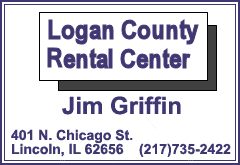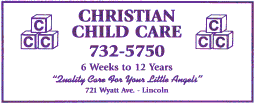|
"I am proud that Illinois is a national leader in the production and
use of cleaner-burning fuels like biodiesel made from soybean oil,"
the governor said. "Today's action expands our commitment to
increasing reliance on Illinois' homegrown, renewable fuels.
Biodiesel is good for Illinois' environment and farmers, and
expanding the incentives program is good for those who buy and sell
these greener Illinois fuels. Looking ahead, we are adding hydrogen
to our list of alternative fuels as we anticipate more hydrogen
vehicles on our roads in the future."
"Making 20 percent or higher biodiesel fuel blends eligible for
Illinois EPA rebates is another important step by the General
Assembly and the governor and another reason why Illinois is a
leader in producing and using alternative fuels," said bill sponsor
Sen. Deanna Demuzio, D-Carlinville.

"Alternative fuels are cleaner, greener and becoming more
affordable," said Rep. Brandon Phelps, D-Harrisburg, the House
sponsor. "Expanding their use now provides economic, environmental
and energy benefits for Illinois today."
Under the current Illinois EPA
program, there are three types of rebates, designed to reimburse
consumers for the additional costs of:
- Purchasing an alternate-fuel vehicle.
- Converting a vehicle to run on an alternate fuel.
- Consistently using an alternate fuel instead of gasoline or
diesel.
The maximum amount for any rebate is $4,000 per vehicle and may
vary by fuel. The eligible fuels include biodiesel (B20 and higher
blends), E-85, natural gas, propane and hydrogen, a new addition.
The expanded alternative fuels program will be funded with existing
appropriations from the Alternate Fuels Fund. The bill goes into
effect immediately.
Gov. Blagojevich's support of House
Bill 931 is consistent with numerous other steps he has taken in
just over two years to advance the ethanol and biodiesel industry in
Illinois, including:
- Announcing $1 million in Opportunity Returns funding for the
National Corn to Ethanol Research Center at Southern Illinois
University Edwardsville to support the center's role in
technological innovation to continue to reduce the costs of
ethanol production.
- Announcing $500,000 in Opportunity Returns funding to increase
access to E-85, an advanced hybrid of ethanol, and allow more gas
station operators to offer the 85 percent ethanol fuel.
- Providing $4.8 million to the Lincolnland Agri-Energy Ethanol
plant in Robinson to help the plant succeed in closing on private
financing for the project. The plant is now producing more than 40
million gallons of ethanol per year.
[to top of second column in this article]
 |

- Signing an executive order requiring increased use of both
ethanol and biodiesel by state employees, similar to the measure
included in the federal proposal.
- Signing legislation in 2003 to eliminate the state sales tax
on E-85, allowing the fuel to retail for 10 to 15 cents per gallon
cheaper than regular unleaded gasoline and eliminating the state
sales tax on biodiesel blends of 11 percent and higher ("B11").
The governor also signed legislation Monday to help the Illinois
Soybean Association operate more efficiently and effectively.
Sponsored by Rep. Dan Reitz, D-Sparta, and Sen. John Sullivan,
D-Quincy,
House Bill 601 amends the Soybean Marketing Act and will result
in the consolidation of two separate boards serving soybean
producers into one. This will cut out repetitive practices and help
the board better serve its constituents.
Currently, the two boards have a total of 37 members, 18 on one
and 19 on the other. The new board will operate as the Illinois
Soybean Association and will be comprised of one member from each of
18 geographic districts and six elected at large, for a total of 24
on the combined board. The new structure assures geographic
representation throughout the state and is expected to create
savings and make better use of the volunteer board's time. The bill
goes into effect on Jan. 1, 2006.

"More soybeans are grown and harvested in Illinois than in any
other state, so it is our responsibility to protect the interests of
the producers in every way we can," said Sullivan, bill sponsor in
the Senate.
Gov. Blagojevich also signed a bill Monday that will make the
sale of pesticides safer. Current law regulates only the most
dangerous and toxic types of pesticides. Sponsored by Rep. Reitz and
Sen. Demuzio,
House Bill 295 requires that all pesticides must be kept
in a separate section of the store and must have at least one person
trained in safe handling and proper storage. The bill amends the
Illinois Pesticide Act to require registration with the Illinois
Department of Agriculture for anyone selling general-use pesticides
to produce an agricultural commodity. It applies to pesticides in
containers holding at least 2.5 gallons or 10 pounds. The bill is
effective on July 1.
"It's a safety issue," Reitz said. "In the last several years,
farm stores have started to carry larger quantities of pesticides.
If handled improperly or if there is an accident, these pesticides
can be harmful to both the handler and the environment. We want to
ensure that bulk products are only in the hands of trained dealers,
for the safety of retail workers and customers."
[News release from the governor's
office]
 |